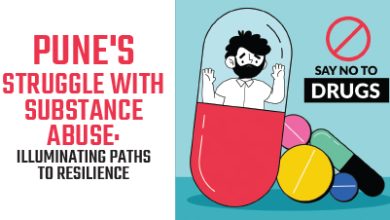
CEO ICHARS, Author Destiny of Choice

1. Introduction:
Psychological defense mechanisms are coping techniques that shield us from unconsciously experiencing and internalizing our emotionally painful thoughts and feelings. They help protect us from feeling overwhelmed or paralyzed by anxiety, depression, shame, or other difficult emotions. While we all use defense mechanisms at times to manage uncomfortable emotions in healthy ways, some people rely too heavily on them as a way of avoiding emotional challenges altogether. When this happens, it can lead to problems in personal relationships and functioning in work and school contexts.
Fortunately, therapy can be very helpful for addressing problematic defense mechanisms and learning healthier coping strategies. In fact, one of the main goals of therapy is to assist clients in identifying their maladaptive patterns so that they can begin to make more conscious choices about how they cope with stressors .
2. What are defense mechanisms?
Defense mechanisms are a natural and often unconscious way to protect ourselves from anxiety, stress, hurt, or pain. We all have defense mechanisms. Some serve us well, while others can cause problems in our lives. It is important for a therapist to help clients identify their defense mechanisms so that they can address them in the course of therapy.
Some common defense mechanisms include:
1. Repression- The conscious blocking of thoughts, feelings, or memories.
2. Rationalization- Making excuses for behaviors or thoughts that may not be in our best interest.
3. Isolation– Avoiding social interaction because it makes us feel uncomfortable or stressed.
4. Disassociation– Putting distance between ourselves and unpleasant memories or situations to avoid feeling them fully.
5. Cathexis– Attaching strong emotions to objects or people in order to protect ourselves from feeling hurt or overwhelmed emotions.
6. Projection – when we place the blame for our own feelings or actions onto someone else.
7. Displacement – when we take out our frustration on someone who isn’t the source of the problem.
3. The Importance of Recognizing and Managing Defense Mechanisms
- Self-Awareness: Recognizing your defense mechanisms is the first step toward self-awareness. It allows you to understand why you respond to certain situations the way you do.
- Improved Relationships: Awareness of your own defense mechanisms can help you better understand others. It reduces projection and can lead to more empathetic and harmonious relationships.
- Emotional Growth: Identifying and managing defense mechanisms is vital for personal growth. It enables you to confront and process challenging emotions, ultimately fostering emotional resilience.
- Effective Problem Solving: Over Reliance on defense mechanisms can inhibit problem-solving. By managing these mechanisms, you can address issues more directly and effectively.
- Enhanced Mental Health: Defense mechanisms are tools for managing emotions, but excessive use can be detrimental. Managing them effectively can contribute to improved mental health and well-being.
4. Why it is important for a therapist to help clients identify and address them in course of therapy
Defense mechanisms are unconscious psychological strategies that we use to protect ourselves from anxiety, stress, hurt and other perceived threats. They can be helpful in the short-term but can become problematic if they are used excessively or in unhealthy ways.
Therapists can help clients to identify their defense mechanisms and work through any underlying issues that may be causing them to rely on these coping strategies too heavily.

Clients can also be encouraged to explore alternative coping mechanisms, such as seeking support from friends or family, talking about their feelings, or using exercise to focus on positive thoughts. If the defense mechanism is stopping the client from accessing certain parts of their life, they may also be referred for therapy which could help them to grieve and process their emotions.
5. Conclusion:
Defense mechanisms are an important part of psychology that help individuals to cope with difficult emotions, thoughts, and situations. They can be helpful in the short-term, but can also cause problems if they are overused or used in unhealthy ways.
Therapists can help clients identify and address their defense mechanisms in order to improve their mental and emotional well-being. This can involve helping clients become aware of their defense mechanisms, examining the underlying emotions and beliefs that drive them, and finding healthier ways to cope with difficult emotions and situations.
It is important for therapists to approach this work in a non-judgmental and supportive way, and to help clients develop a greater understanding of their own emotions and how to effectively manage them. By doing this, therapists can help clients develop greater emotional intelligence and resilience, and improve their overall well-being.
If you want to learn more about defense mechanism you can check out the given link: https://instituteofclinicalhypnosis.com/?s=defense+mechanism
By Nitin Shah
https://cafe-social.in/presupposition-of-nlp-uncovered/: DEFENSE MECHANISM IN PSYCHOLOGY






